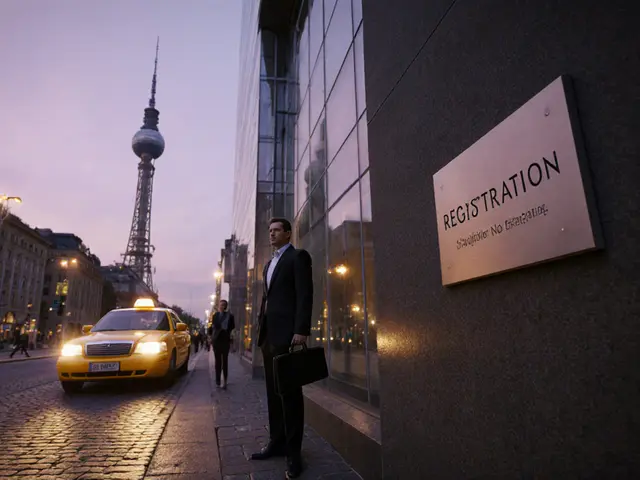London Escort Industry: How Social Attitudes Have Evolved
The London escort industry has been reshaping the city’s nightlife for decades. From smoky clubs in the 1970s to sleek agency offices today, it mirrors how society views intimacy, consent, and commerce.
London escort industry is a multi‑billion‑pound sector that offers companionship services ranging from high‑end agency bookings to independent freelancers. While the numbers fluctuate, a 2022 market analysis estimated annual revenues around £2.4billion, underscoring its economic weight.
Key Takeaways
- The legal framework governing escorts in London shifted dramatically after the 2005 Prostitution Act, moving from criminalisation of clients to a focus on exploitation.
- Digital platforms have turned the industry into a largely online marketplace, reducing street‑level visibility and altering client expectations.
- Public perception is softening, especially among younger adults who see escort work as a form of consensual adult labour.
- The COVID‑19 pandemic forced a rapid pivot to virtual experiences, accelerating trends that were already emerging.
- Human‑rights discussions now frame sex work as labour, influencing policy debates and advocacy.
From Backrooms to Boardrooms: A Brief History
In the post‑war era, escort services were hidden behind back‑rooms of theatres and nightclubs. Sex work refers to the exchange of sexual or intimate services for money or goods was largely stigmatized and pushed underground.
The 1970s saw the rise of “gentlemen’s clubs” that marketed discretion. By the 1990s, agencies began publishing glossy brochures, signalling a shift toward professionalism. This era also introduced the first public debates about workers’ rights, laying groundwork for future reforms.
Legal Landscape: From Criminalisation to Regulation
Until the early 2000s, the Policing and Crime Act 2009 introduced provisions that targeted the procurement of sexual services, effectively criminalising clients while protecting those who could demonstrate they were operating voluntarily. The law marked a departure from earlier statutes that treated all parties as criminals.
In practice, the change meant that agencies could register as “entertainment businesses” provided they adhered to licensing requirements and anti‑trafficking checks. This created a regulatory gray zone: while selling sexual services remained illegal, offering companionship for a fee became more visible.
Recent court rulings-most notably the 2021 Supreme Court decision that reinforced the principle of “consensual adult labour”-have further solidified this trend. Advocates now argue for a full de‑criminalisation model similar to the “Nordic model,” but with safeguards for workers’ autonomy.
Digital Platforms: The New Marketplace
The internet’s arrival reshaped the industry faster than any law could. Online escort platforms websites and apps that connect clients directly with independent providers such as “LuxeLondon” and “PrivéCompanions” now dominate the market.
Key advantages include:
- Instant verification of age and consent through ID checks.
- Rating systems that build trust without the need for a physical office.
- Greater control for escorts over pricing and schedules.
These platforms also blur the line between “escort” and “influencer,” with many providers leveraging Instagram and OnlyFans to market themselves. The result is a diversified ecosystem where a client can book a dinner companion, a weekend getaway, or a virtual chat with a few clicks.

Client Demographics: Who Is Booking?
Data from the 2023 “London Nightlife Survey” shows a notable shift in client profiles:
- Age 25‑34: 42% of bookings, driven by tech‑savvy professionals.
- Age 35‑50: 35%, often seeking discreet companionship for business travel.
- Age 18‑24: 15%, reflecting curiosity and a more liberal view of sex work.
- Others (over 50, foreign tourists): 8%.
The rise of “experience‑focused” bookings-such as cultural tours, fine‑dining evenings, and art gallery visits-signals that many clients value companionship over purely sexual encounters. This aligns with broader cultural shifts toward consent‑centric relationships.
Social Stigma and Human‑Rights Discourse
Public opinion polls from 2024 indicate that 56% of Londoners now view consensual escort services as “a legitimate form of adult work,” up from 31% a decade earlier. The narrative is changing from moral condemnation to a rights‑based perspective.
Human rights organisations groups that advocate for the legal and social protections of individuals, including sex workers like Amnesty International have cited the European Convention on Human Rights a treaty protecting civil and political rights across Europe in recent legal challenges.
Human‑rights organisations have been cited in court cases arguing that punitive measures against sex workers violate Article8 (right to private life). These arguments bolster advocacy for full labour protections, such as minimum wage guarantees and health‑insurance access.
Nevertheless, stigma persists in certain circles-particularly among older demographics and some religious communities-creating a “double‑life” scenario where escorts must navigate both professional and private identities.
COVID‑19: A Catalyst for Virtual Intimacy
The pandemic forced many providers to shutter physical meet‑ups. Within weeks, COVID‑19 pandemic impact the disruption caused by lockdowns and social distancing measures gave rise to “virtual escort” services, ranging from video calls to tailored erotic storytelling.
Revenue reports from 2021 show a 27% increase in virtual bookings compared to 2019, with many clients paying premium rates for customized digital experiences. While in‑person services rebounded in 2023, the virtual component remains a permanent fixture, offering greater flexibility for both parties.

Future Outlook: Trends to Watch
Three forces will likely shape the next decade:
- Regulatory evolution: Ongoing debates about de‑criminalisation could lead to clearer licensing frameworks, potentially boosting safety and legitimacy.
- Technology integration: AI-driven matchmaking algorithmic systems that pair clients with escorts based on preferences and safety criteria and secure cryptocurrency payments may further anonymise transactions while improving client‑provider matching.
- Cultural normalization: As younger generations continue to view sex work through a labour‑rights lens, mainstream media may depict escort experiences more positively, reducing stigma.
Stakeholders-policy makers, platform owners, and the escorts themselves-must collaborate to ensure that growth benefits workers’ wellbeing rather than merely expanding profit margins.
Comparison: Traditional Street‑Based vs. Online Independent Escorts
| Aspect | Street‑Based Escorts | Online Independent Escorts |
|---|---|---|
| Typical Setting | Public streets, clubs, or designated “red‑light” zones | Digital platforms, personal websites, social media |
| Pricing Range | £150‑£300 per hour | £300‑£800+ per hour, often tiered packages |
| Client Profile | Local walk‑ins, often younger males | Domestic & international professionals, higher disposable income |
| Legal Risk | Higher risk of police raids, limited protection | Lower direct risk; platforms enforce ID verification |
| Technology Use | Minimal; reliance on word‑of‑mouth | Advanced; encrypted messaging, e‑payments, rating systems |
Next Steps for Readers
If you’re a researcher, consider interviewing both agency‑based and independent escorts to capture nuanced experiences. Policy advocates should track forthcoming legislation drafts at the Home Office. And if you’re simply curious, explore reputable platforms that publish transparency reports and safety guidelines.
Frequently Asked Questions
How has UK legislation changed the way escorts operate in London?
Since the Policing and Crime Act 2009, the focus shifted from arresting sex workers to targeting exploitation. Agencies can now register as entertainment businesses, provided they conduct age‑verification and anti‑trafficking checks. Recent court rulings have reinforced the view that consensual adult work should be treated as labour, encouraging a move toward clearer regulation.
What are the most common misconceptions about escort services?
Many assume escorts are all part of organized crime, but most operate independently or through licensed agencies. Another myth is that all services are purely sexual; in reality, a large share of bookings focus on companionship, cultural experiences, or virtual interaction.
Are online platforms safer for both clients and escorts?
Digital platforms usually require ID verification, allow rating systems, and provide secure payment gateways, reducing the risk of street‑level scams or police raids. However, safety still depends on the platform’s security measures and the individual’s diligence.
How did the COVID‑19 pandemic affect the escort industry?
Lockdowns halted in‑person meetings, pushing many providers to offer video calls, virtual dates, and digital content. This shift generated a 27% rise in virtual bookings in 2021 and introduced lasting hybrid service models that combine physical and online engagements.
What future developments could further normalize escort work?
Potential de‑criminalisation, broader acceptance of sex‑work as labour, and integration of secure technologies like AI matchmaking and cryptocurrency payments could all contribute to destigmatization and better worker protections.






